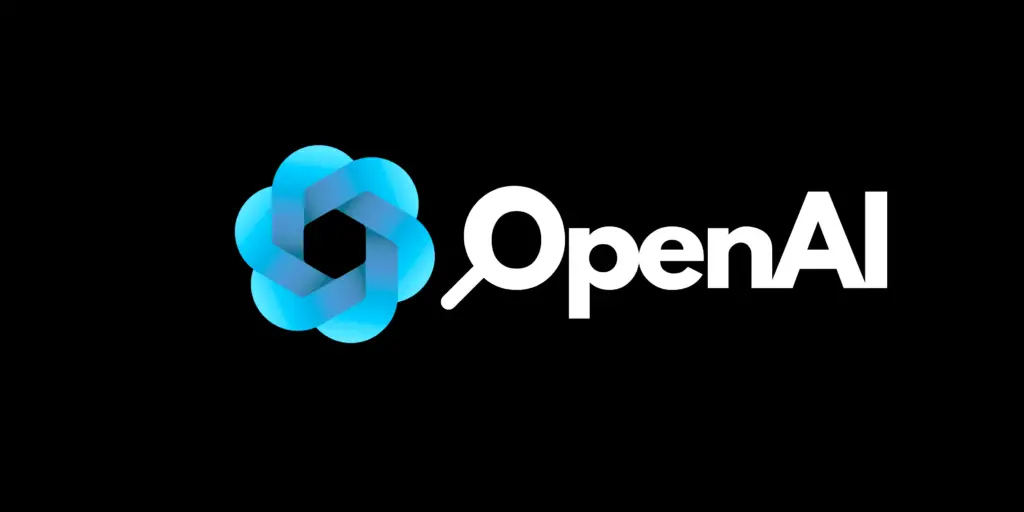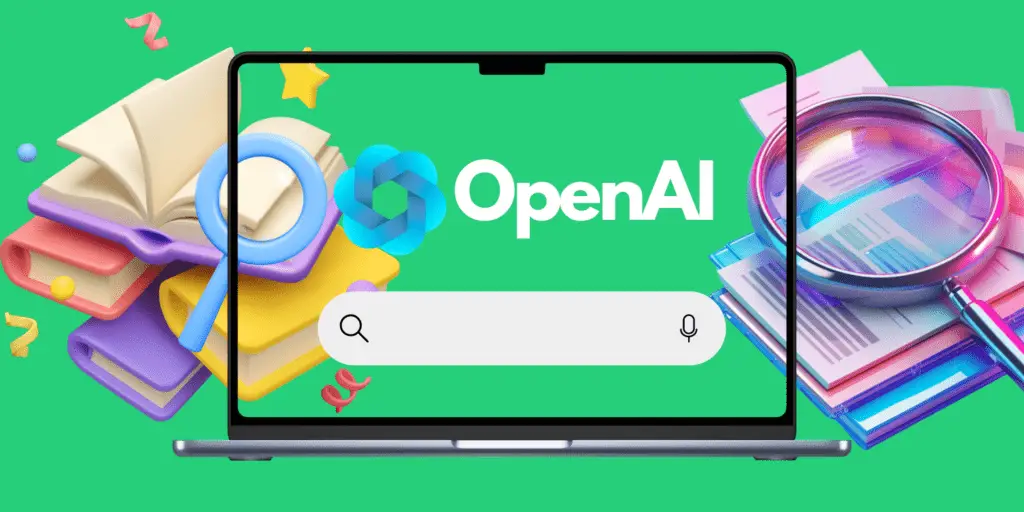OpenAI, a trailblazer in artificial intelligence, is gearing up to announce its latest venture—an AI-powered search product—this Monday.
This upcoming reveal not only intensifies the burgeoning rivalry with the reigning search giant Google but also strategically preempts Google’s annual I/O conference slated for the following day, where a host of AI innovations are expected to be unveiled.
As industry onlookers anticipate a significant shift in how users interact with online information, the introduction OpenAI’s AI-Powered Search Engine I AI-Powered Search Engine.
An extension of its renowned ChatGPT technology, promises to blend sophisticated AI capabilities with direct internet data access, setting a new benchmark in the realm of digital search solutions.
OpenAI’s AI-Powered Search Engine
This new search tool is designed to enhance ChatGPT’s utility by enabling it to fetch and integrate direct information from the web, complete with proper citations.
This capability addresses a fundamental limitation previously faced by ChatGPT—accessing updated and accurate information in real time.
The technology behind this search product leverages OpenAI’s advanced AI models, which are already renowned for generating human-like responses to text inputs.
By integrating direct web access, OpenAI aims to transform ChatGPT from merely a conversational agent into a robust informational tool that can serve as a credible alternative to traditional search engines.
This product appears to be developed in collaboration with Microsoft, leveraging the Bing search engine to provide an enriched data source for paid subscribers.

This integration highlights a growing synergy between OpenAI and Microsoft, setting the stage for a deeper incursion into territories traditionally dominated by Google.
The introduction of this search product represents a strategic evolution of OpenAI’s offerings, reflecting its commitment to enhancing user experience and broadening the practical applications of its AI technologies in everyday web interactions.
Competitive Landscape
The search engine market has long been dominated by Google, a titan whose algorithms and extensive index have set the standard for what users expect in search capabilities.
The entry of OpenAI’s new search product signals a potential shift in this dynamic, challenging Google’s supremacy with a fresh, AI-driven approach.
OpenAI is one of many entities vying for a share of this lucrative market. Perplexity AI, a startup founded by a former OpenAI researcher, has also thrown its hat into the ring.
With a valuation of $1 billion and boasting 10 million monthly active users, Perplexity offers an AI-native search interface that integrates citations directly into search results alongside responses that combine text and images.
This positions Perplexity as a direct competitor, not only to traditional search engines but also to OpenAI’s new product.
The landscape is further complicated by Google’s own forays into generative AI. Anticipating the rise of AI-integrated search tools, Google has begun implementing AI features into its search engine, aiming to preserve its market dominance by innovating from within.
This move illustrates the company’s adaptability and intent to maintain a competitive edge in a rapidly evolving technological field.
As OpenAI introduces its search product, the competitive landscape will likely see increased innovation and a reshuffling of market shares.
Companies are now tasked with improving search results and seamlessly integrating AI to enhance user interaction and satisfaction.
Strategic Timing
It comes just one day before Google’s annual I/O conference, an event that traditionally showcases Google’s latest advancements in technology, including AI.
This preemptive move by OpenAI is likely to capture the attention of the tech community and position its new search product as a formidable contender in the AI space before Google can unveil its own latest innovations.
This deliberate scheduling is also an effort to influence the narrative around AI and search technology, setting a benchmark that may recalibrate expectations for what AI-driven search engines can achieve.
By announcing just ahead of Google’s event, OpenAI ensures that its developments are fresh in the minds of consumers and analysts alike, potentially overshadowing some of Google’s announcements.
The announcement’s timing may be aimed at capitalizing on the heightened media coverage and audience engagement surrounding Google’s I/O conference.

With many eyes already on the AI sector due to the conference, OpenAI’s announcement could benefit from the increased visibility, drawing interest from potential users and investors keen on the latest technological breakthroughs.
In a broader sense, the timing reflects the intense competition and rapid pace of innovation within the tech industry, where companies are eager to stake their claims on new technological territories.
By choosing this particular moment for the announcement, OpenAI not only challenges Google directly but also asserts its ambition to be a leader in the next wave of tech advancements.
Challenges and Opportunities
As OpenAI ventures into the competitive arena of search engines with its new product, it faces a blend of significant challenges and promising opportunities.
One of the most critical challenges that OpenAI has historically faced with ChatGPT is its struggle to provide accurate and real-time information from the web.
Users expect search engines to deliver the most current and precise data, and any shortcomings in this area could hinder user trust and adoption.
Successfully integrating and scaling the new search capabilities with ChatGPT’s existing framework while maintaining performance and reliability will be crucial.
Ensuring that the system can handle large volumes of queries without compromising speed or accuracy will be a technical challenge.
Competing with Google, which has a deeply entrenched user base and a sophisticated ecosystem, requires matching and exceeding their standards of user experience and search result relevancy.
By leveraging its advanced AI technology, OpenAI has the opportunity to redefine user interactions with search engines.
Features like conversational search queries, context-aware results, and integrated learning algorithms can offer a more intuitive and customized search experience.
If successful, the new search product could significantly expand OpenAI’s user base beyond those seeking AI conversations, attracting users looking for an effective alternative to traditional search engines.
The existing partnership with Microsoft and its Bing search engine could substantially boost, offering infrastructural support and a potential user base from Microsoft’s ecosystem.
As AI continues to permeate various aspects of technology, OpenAI has the chance to set new standards for how AI can be integrated into everyday tech tools, influencing future developments across the industry.
The intersection of these challenges and opportunities will define OpenAI’s journey in the search engine market, potentially reshaping how information is accessed and utilized in the digital age.
Industry Reactions and Speculations
The announcement of OpenAI’s new AI-powered search product has generated a mix of excitement, skepticism, and strategic analysis within the tech industry.
Various stakeholders from technology firms, market analysts, and media outlets have weighed in, highlighting the broader implications of this development.
Many in the tech and AI communities have expressed enthusiasm about OpenAI’s innovative approach to search, anticipating a new era where AI not only assists but leads in information retrieval.
Experts in artificial intelligence are particularly interested in the technical aspects of integrating direct web data into an AI model like ChatGPT.
Google and other search engine providers are reportedly ramping up their AI capabilities in response.
There is a general anticipation of an AI arms race in the search engine market, with companies pushing the boundaries of what AI can do within this domain.
Financial and business analysts are cautiously optimistic, speculating on the potential market disruption this product could cause.
They focus on how OpenAI’s entry into the market might impact the stock prices and market shares of established players like Google.
Speculation abounds regarding how OpenAI’s search product might shift user preferences and search behaviors.
Some predict a fragmentation of the search market, while others foresee a consolidation around a few AI-powered platforms.
With AI’s increasing role in processing personal and sensitive information, there are rising concerns about privacy and data security.

Industry observers are speculating on how OpenAI will handle these issues, particularly given the heightened sensitivity around data misuse.
The broader implications for AI development are also a topic of intense speculation.
OpenAI’s project could spur further innovation and raise ethical standards for AI applications, especially in handling real-time information and user interactions.
The industry’s reaction to OpenAI’s announcement is a blend of anticipation for the technological advancements it promises and concern for the ethical and competitive challenges it may bring.
Final Thoughts
As OpenAI prepares to unveil its AI-powered search product, the tech world stands at the cusp of a potential revolution in how we search for and interact with information online.
This bold move by OpenAI not only challenges the dominance of established players like Google but also signals a significant shift towards more interactive and intelligent search platforms powered by advanced AI.
The strategic timing of the announcement, just before Google’s I/O conference, and the innovative features expected in this new product, exemplify OpenAI’s ambition to lead and transform the search engine market.
With such innovation comes a set of challenges—particularly in ensuring accuracy, privacy, and real-time responsiveness—that will test the capabilities of OpenAI’s technologies.
The industry’s reaction has been a mixture of excitement and caution, reflecting the broader implications for competition, market dynamics, and technological advancement.
As speculation continues about the future of AI in everyday applications, OpenAI’s move could be a defining moment in setting new standards for user experience and ethical AI usage.
OpenAI’s upcoming announcement is not just about a new product launch; it is about setting a new direction for the future of search engines.
Whether this initiative will lead to a broader adoption of AI in our daily online interactions or reshape the competitive landscape remains to be seen, but one thing is certain: the digital world is watching closely, ready to adapt to these new technological horizons.


